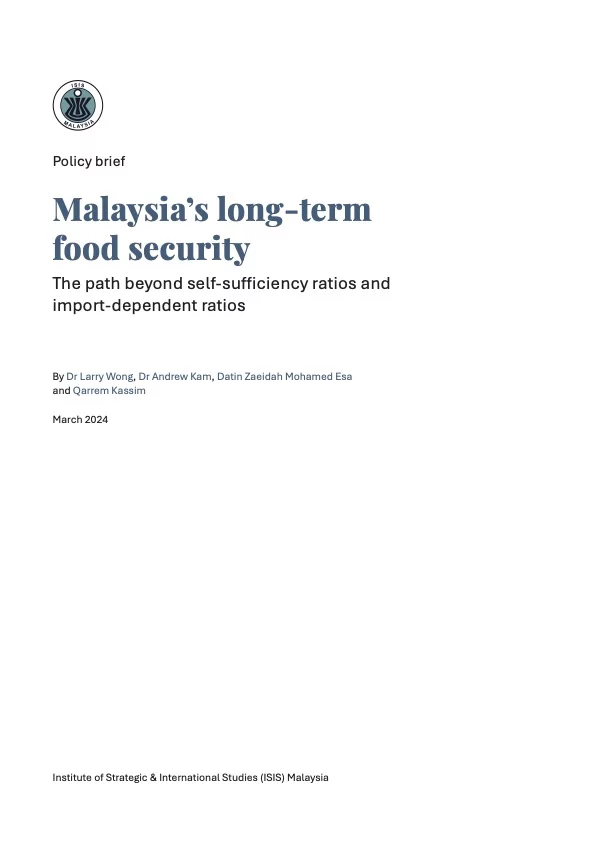Executive summary
- The existing overemphasis on self-sufficiency ratios and import-dependency ratios could lead to inefficiencies and limited resilience. Comprehensive and holistic food security systems should extend to the dimensions of accessibility, utilisation, stability, sustainability and agency.
- Striking a balance between self-reliance and self-sufficiency is crucial for addressing future disruptions. Malaysia’s food security should focus on household financial ability, nutritional status and resilience, rather than solely on national production and self-sufficiency.
- Food resilience involves a system’s ability to withstand shocks and recover while ensuring a steady and reliable supply of nutritious food. Substitutability and complementarity of food items as sources of the food pyramid and sustainable farming practices are essential components of food resilience, which could benefit from policies incentivising sustainable farming practices, risk-sharing and boosting investments, especially in R&D&I&C.
- IPR-INTAN, introduced as part of the mid-tern review (MTR) of the 12MP, aims to strengthen food system modernisation. This can be complemented with other best practices, such as smart farming and large-scale farming by shifting from short-term optimisation to a long-term balance.
- Classification of palm oil as food will transform Malaysia’s position from a net importer to a net exporter of food. By aligning Malaysia’s classification with FAO’s, the World Bank’s and UNCTAD’s definition, we can position Malaysia as a consistent net food exporter and unlock opportunities for strategic and innovative trade, countertrade and investment arrangements.
- Relatedly, as a net-food exporter, Malaysia could leverage on and actively promote and pursue food diplomacy in relation to food security through its membership in selected multilateral and regional frameworks as well as bilateral arrangements. Towards this end, key stakeholders in other ministries and the private sector will be increasingly involved in a whole-of-nation effort in pursuit of these strategic arrangements, which will enhance Malaysia’s long-term food security.
- Multiple policies across eight ministries along with varying local-level considerations challenge coordination, policy coherence and effective governance. As food systems are multifaceted and multidisciplinary, coordination among government agencies, periodic reviews and improvisation in state-level participation to address varying food security challenges are pivotal.
Malaysia’s long-term food security
The path beyond self-sufficiency ratios and import-dependent ratios
by By Dr Larry Wong, Dr Andrew Kam, Datin Zaeidah Mohamed Esa
and Qarrem Kassim, March 2024.





